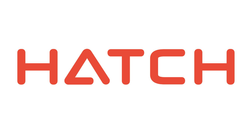State of the coal mining industry
| State of the coal mining industry | 17.55 KB | Download | |
| Hatch Goba Director for Coal Gerrit Lok | 2.77 MB | Download | |
| The supply of thermal coal is firmly fixed in the South African governments national planning | 2.65 MB | Download | |
| Underlying long-term demand factors for thermal and coking coal still stem primarily from China and India | 1.71 MB | Download |
Coupled with the global economic uncertainty are supply and demand factors stemming from major economies such as the United States and China, which has had an impact on coal pricing.
“Looking to thermal coal, the United States has increased their thermal coal exports due to an increase in the country’s use of gas as an alternate energy source; China has seen most of its energy coming from hydro-power sources in 2012 owing to an extremely wet season and Indonesia dumped large volumes of coal on the market at much lower prices than anticipated. These factors coupled together saw an overall softening of prices on the back of demand in the market during 2012. Looking to 2013, pricing predictions for thermal coal are around $110 per ton for coking coal and $180 per ton for thermal coal,” explains Lok.
Lok says that the underlying long-term demand factors for thermal and coking coal still stem primarily from China and India, with the urbanisation of China being one of the major drivers. In the medium term though, modest growth in thermal and coking coal demand is expected. “In order to maintain this modest growth, three factors need to be met, which include: the continuation of the Chinese twelfth 5-year development plan; maintaining or improving the financial situation in Europe and sustained recovery in the United States,” explains Lok.
Looking to South Africa, Lok points out that the supply of thermal coal is firmly fixed in the government’s national planning. In order to secure the long-term supply of South Africa’s coal needs, two challenges need to be overcome, namely: the firming up of the contracted Eskom coal supply for the long-term and the development of the Waterberg complex, in the Limpopo Province. Development of the Waterberg complex, in itself, also poses certain challenges of which a large capital outlay on infrastructure is one.” explains Lok.
Lok says that demand for coking and thermal coal will continue to rise in volume although the percentage of coalused as part of the energy mix may come down. “Globally everyone wants a lower carbon future; however the realities of the situation show how difficult it is to find a suitable replacement for coal. Nuclear power is also set to remain an important part of the energy mix. If South Africa wants to reduce its carbon footprint in terms of baseload, nuclear power will be one of the few options that the country can look at. ” explains Lok.
Looking ahead, Lok stresses the importance of collaboration and research in the coal industry. The Coaltech 2020 Research Programme is one such example that has been very positive. Coaltech 2020 is a collaborative programme which has been formed by major coal companies, Universities and the Council for Scientific and Industrial Research. Another research programme of importance is the South African Coal Road Map.
Lok concludes by saying that much more effort needs to be placed on managing our strategic coal resources in South Africa especially given its importance as an energy source and foreign exchange earner.
Ends.
Notes to the Editor
There are numerous photographs specific to this press release. Please visit http://media.ngage.co.za and click on the Hatch Goba link.
About Hatch Goba
Hatch supplies process and business consulting, information technology, engineering, and project and construction management to the mining, metallurgical, energy and infrastructure industries.
Media Contact
Kelly Farthing
NGAGE Public Relations
Phone: (011) 867-7763
Fax: 086 512 3352
Cell: 079 367 7889
Email: Kelly [at] ngage [dot] co [dot] za
Web: www.ngage.co.za
Browse the Ngage Media Zone for more client press releases and photographs at http://media.ngage.co.za

